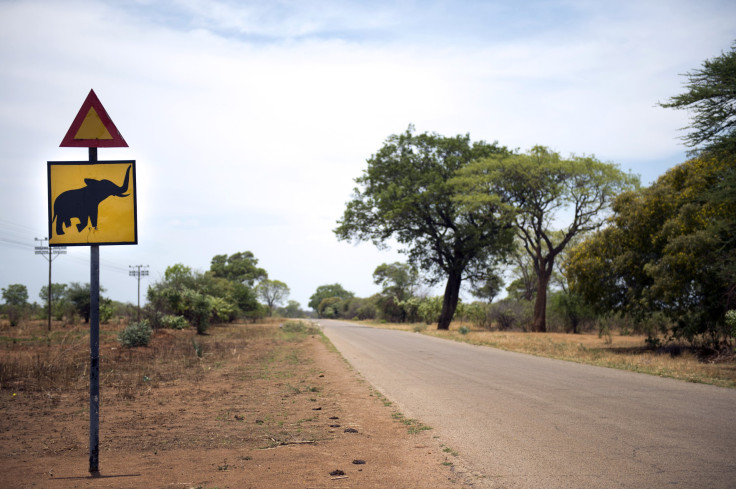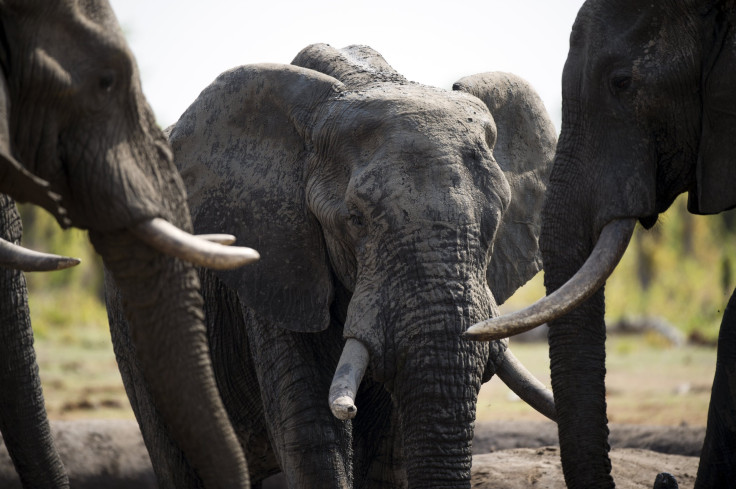Are Park Rangers Poisoning Zimbabwe's Elephants With Cyanide? Underpaid, Disgruntled Workers Killing Pachyderms: Report

Disgruntled, underpaid park rangers are poisoning and killing elephants in Zimbabwe’s Hwange National Park, conservation sources told the U.K. newspaper the Telegraph Tuesday. At least 62 wild elephants in the southern African country have died from cyanide poisoning in the past month.
Many of the carcasses were found with their ivory tusks still intact, which suggest the perpetrators either were interrupted or were perhaps killing the elephants for another reason. A source close to the Zimbabwe Parks and Wildlife Authority told the Telegraph some of the poisonings may be the work of park rangers who risk their lives to protect wildlife from poachers and yet are paid very little. The rangers might be resorting to poaching to make extra cash or they might be poisoning the pachyderms as a form of “protest,” the source told the Telegraph.
"I am afraid there are serious management problems within parks,” he told the Telegraph. “Some of the rangers are very dissatisfied with their remuneration and say that they are not getting some allowances they believe they should get. But they know that management in Harare do get these allowances, such as help with school fees for their kids.”
"So many of us believe that some of the poaching at the moment is organized and executed by some rangers in parks, and we don't know how this will be sorted out,” the source added.
Wildlife authorities discovered Monday at least 22 more elephants poisoned from cyanide in Hwange National Park, 372 miles west of the capital. Only three ivory tusks were removed from the carcasses and the latest poisonings brought the total to 62 for October alone, the Associated Press reported.

Most of the killings have taken place in Hwange. But in all cases, the killers have laced salt licks, maize cobs or oranges with cyanide to lure the large mammals to their death. The poison has killed not only the elephants but other animals too, including predators who feed off the carcasses.
The spate of poisonings in western Zimbabwe have been blamed largely on poachers, who began using cyanide in 2013, when as many as 300 elephants died in Hwange from salt pans lined with the poison. Cyanide is commonly used in Zimbabwe’s mining industry, making it relatively easy to obtain.
"The suffering is horrible. They get weak very quickly and collapse. You might not die quickly, but you don't walk very far,” Dave Dell of Friends of Hwange, which raises donations to run pumps for about 80 watering holes in Hwange National Park, recently told the Los Angeles Times.
Headman Sibanda, owner of Nyala Safaris who was charged with illegally allowing an American gynecologist to kill a lion near Hwange park, said some rangers were involved in the poisonings. One of two rangers recently arrested on suspicion of poisoning elephants earns just $429 per month, including allowances, the Telegraph reported. Meanwhile, an average elephant can yield 10 kilograms of ivory, with each kilogram fetching as much as $3,000 on the lucrative black market, according to Conservation Magazine.
"They are angry because of lack of allowances,” Sibanda told the Telegraph Tuesday. “Some of them believe they should be getting allowances and they are not, but some senior management are getting allowances unfairly."
Zimbabwe has a large elephant population of about 100,000, but the number has sharply declined in recent years. The population in the northern Sebungwe district has dropped 75 percent since 2001 -- from 14,000 to 3,500 -- while the number of elephants in middle Zambezi Valley complex fell 40 percent to from 18,000 to 11,500, according to the Zambezi Society, a local conservation group.
© Copyright IBTimes 2024. All rights reserved.











